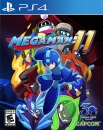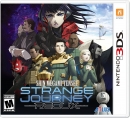There are 3 main things that come to mind for me. But I'm also mentioning a couple of bonus ones. And I'd also like to preface that none of these are hard and fast rules and I'm curmudgeonly and "old" so I grew with different expectations for gaming industry practices than most modern audiences it seems. Anyway, in no particular order:
1. Games that try to incite FOMO
My problem isn't live service games per se. They are often big offenders of this one, but there are live service games that are more fair with their economies (ex. Monster Hunter games). I feel less FOMO when everyone is on the same equal playing ground with no way to get ahead other than playing and playing well. Meanwhile, many games try to get you to spend money by putting a limited time on things and making the grind impossible for people who aren't living and breathing that one game, or they construct a game economy where things that are unlocked impact the game directly, and tie the paid economy in the game to those unlocks, requiring you to pay to stay competitive.
I grew up in a time where everything that could possibly be unlocked in a game was available day 1 and it was a mark of skill and perseverance to unlock certain things; no shortcuts. And I do understand the nature of many games (especially multiplayer games) has changed in order to try to keep people around, but my mental training from when I grew up seems pretty solidified in just completely disconnecting with a game the moment I sense this kind of practice, be it through the marketing or in playing it. Once I feel like I'm being played by algorithms to force a favourable monetary outcome for the publisher, I just inherently lose all interest in that game. There's plenty of amazing stuff out there to play so I don't feel at a loss.
Now I will say that this one doesn't impact me a whole lot because I just generally don't play many games with this kind of model because I feel like I could play 4-5 games in the time I'd spent on 1 multiplayer game and the variety just excites me a lot more. I also had my fill of multiplayer in the late 90s and early 2000s with Quake 3, Unreal Tournament 2004, Rainbow Six 3, and Halo 2/3.
2. Bought PC Game Store exclusivity/timed-exclusivity
This is a tricky one to navigate because in some cases the game may not exist if not for the funding, but even then I'm not inclined to reward this practice. I understand if the game is developed in-house by the same company that owns the store, but when it's a third party title I tend to back away from wanting to purchase the game. I don't want to reward the practice because I want PC gaming to be a more open platform with choice. Somewhat artificially limiting that choice doesn't resonate well with me. Fortunately most of the parties that have attempted this practice in the past have either done it with only first party games (which I'm okay with) or have gone back to releasing on more storefronts. Epic seems to be the big outlier here. It was tough when BL3 came out, it was even tougher when Alan Wake 2 came out, and it's going to be tough when Fumito Ueda's next game comes out. Heck, just the other day Ninja Gaiden Black 2 released and I was ready to buy it only to realize it's only on the Microsoft Store.
3. Games that artificially create a problem and try to sell you the solution
So this one is often tied to #1 but they're not mutually exclusive. And in the last 5 years this has started to creep into some single-player games. I think the most well known example is Assassins Creed. Level caps, large slogs of samey content, and experience boosters just screams "we created a problem in wasting your time and are selling you the solution." The game was designed with those level caps and limitations. The game was designed with the experience economy it has. If there's a problem with the game feeling so long that you've pre-emptively created paid time savers before your game has even launched, you know what you're doing. The game could have equally been designed to have the experience economy dole out experience so you don't need to engage with as much side stuff to get to the level caps, or a slider to set the speed of the economy.
Bonus: Multiple editions and lack of clarity between what I'm getting. I just stopped myself from buying Yakuza: Like a Dragon last night because there were vague descriptions on what I'd be getting for the middle edition. I'll revisit the decision down the line after I've finished Yakuza 3-6.
Bonus 2: Bad PC Port - A game needs to be very special for me to overlook this and even then my enjoyment is somewhat dulled. I've held off on buying Jedi: Survivor and Dead Space Remake as a result and only picked up FF7 Remake recently because I got a pretty great deal. Elden Ring was another one where the first 30 hours of playing were brutal but once a lot of the shaders were compiled it ran smoother... until the DLC where it chugged again for a good portion of it. I'm happy to wait 5-10 minutes on first launch for shader compilation to take place.






































































